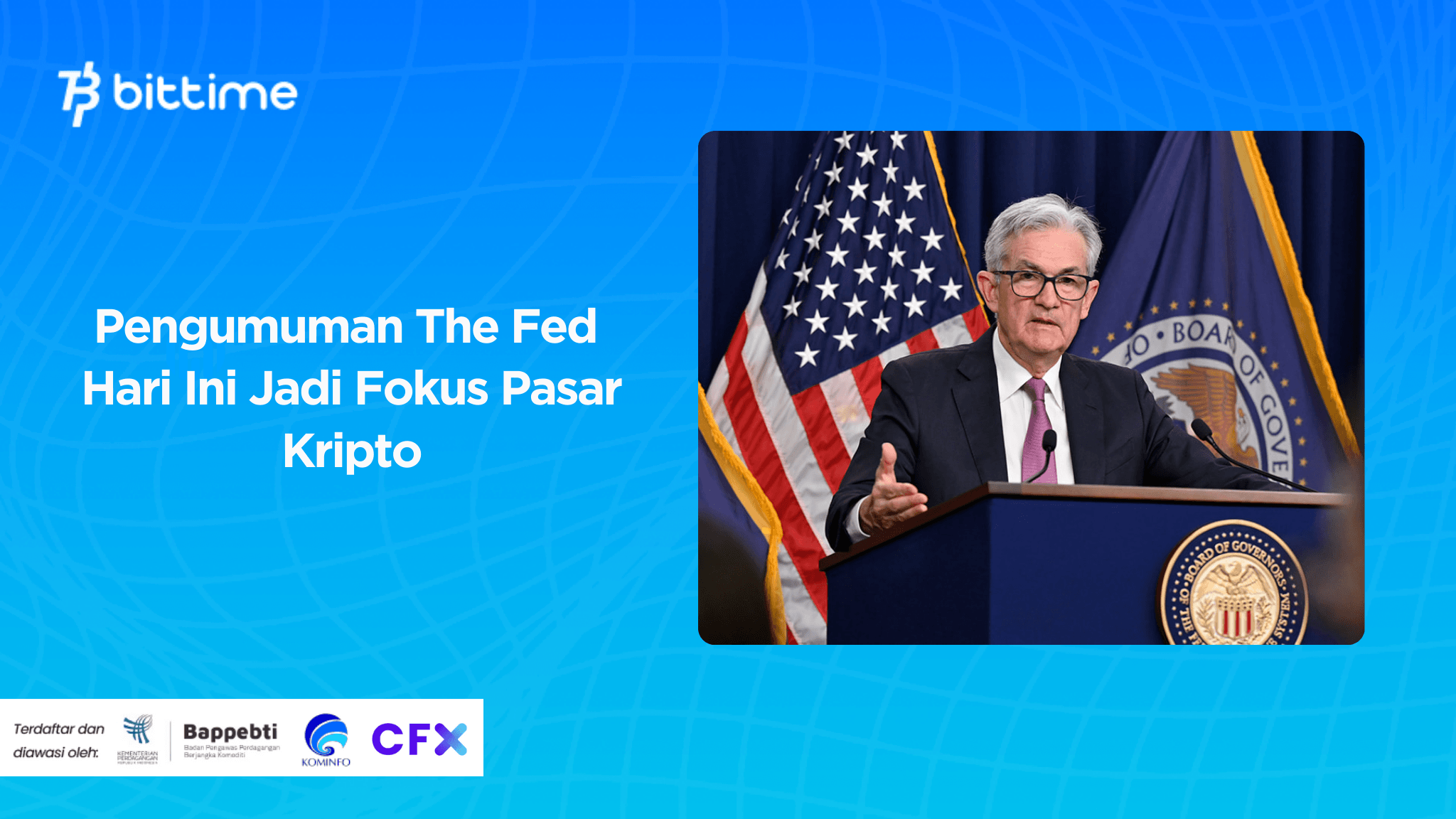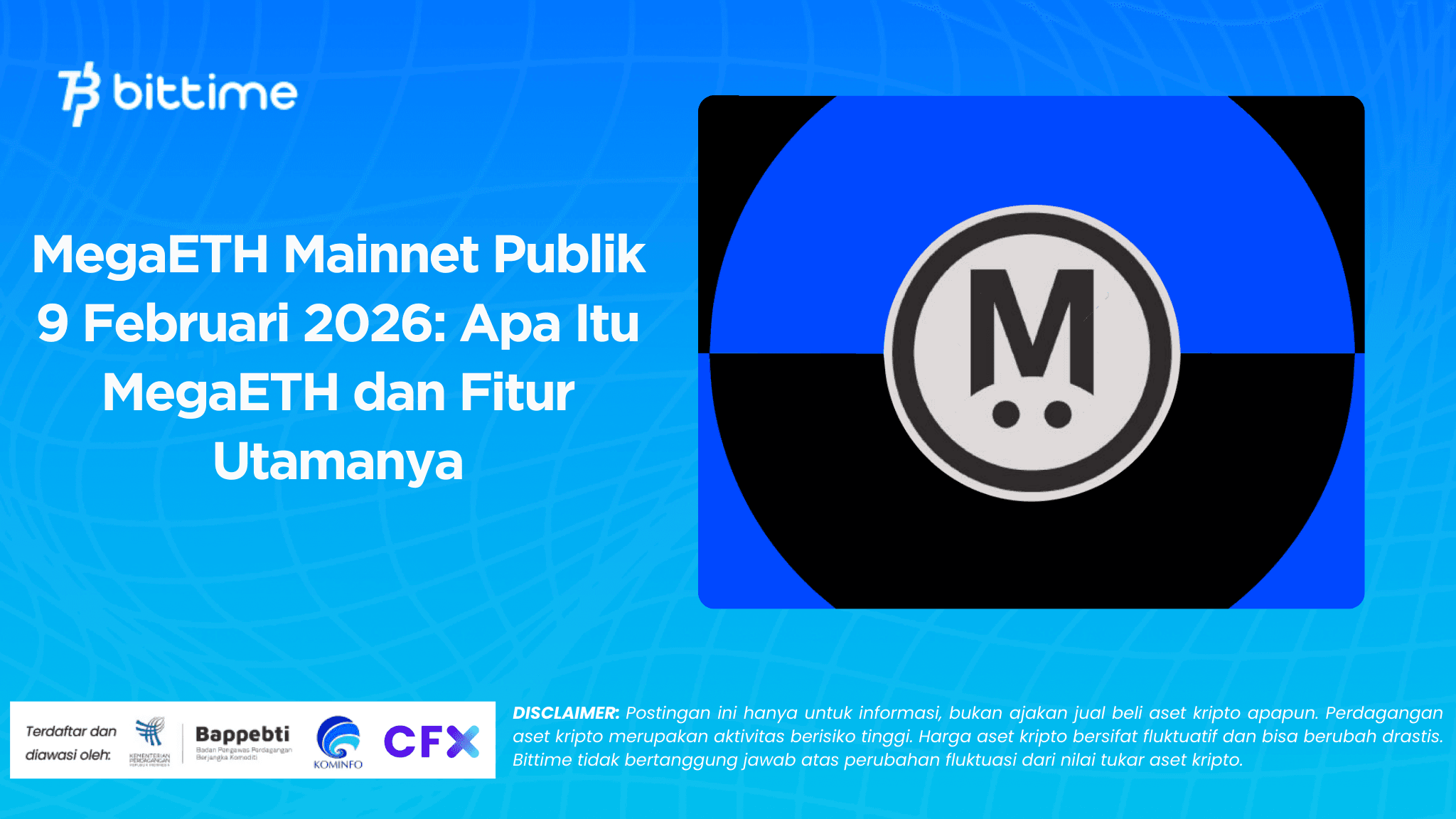Donald Trump Signs Executive Order Removing Crypto Banking Policy Restrictions, Here's the Impact!
2025-03-11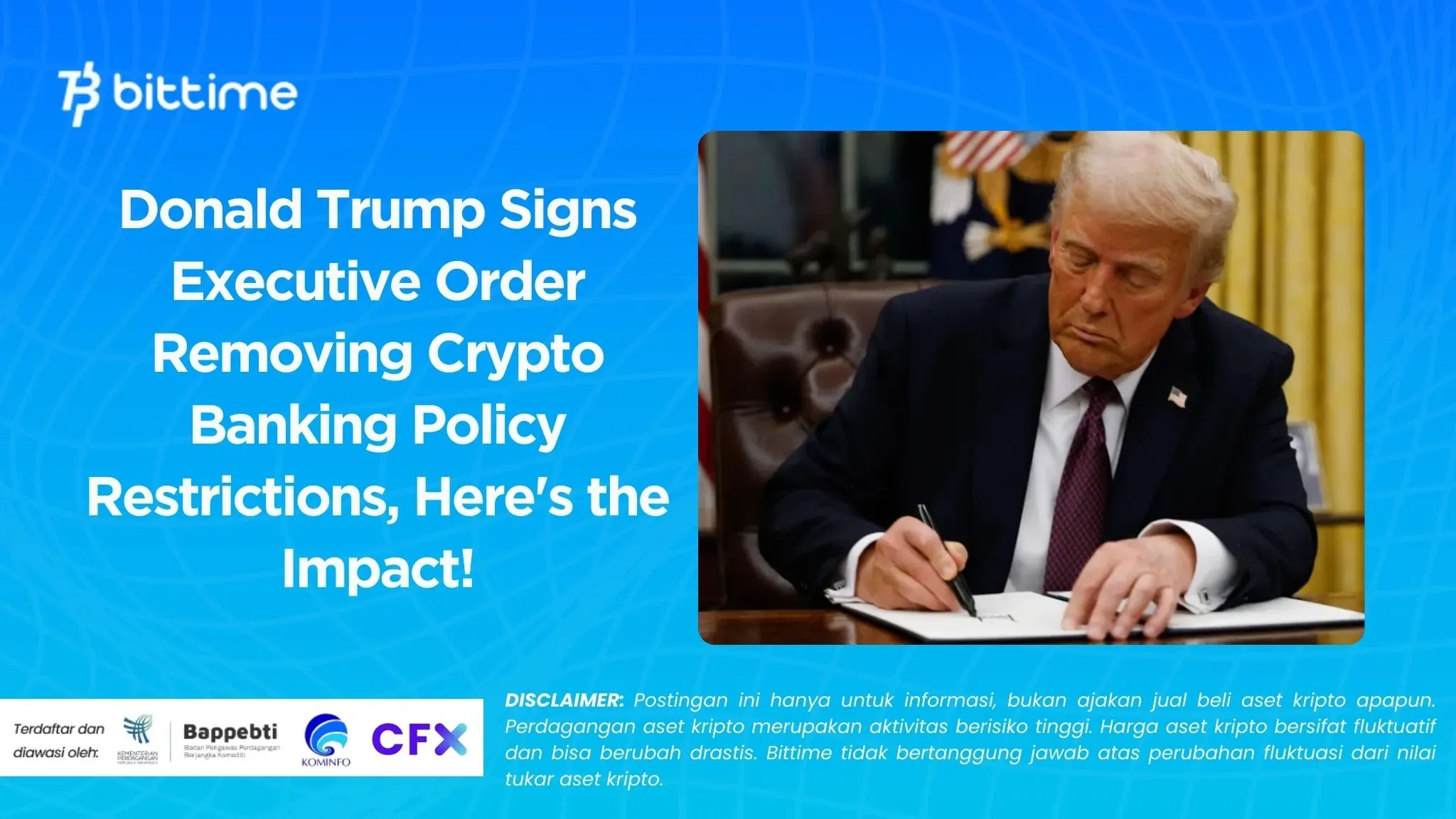
Bittime - In the midst of tight regulations on the crypto industry, President Donald Trump is ready to sign an executive order that could change the direction of banking policy regarding digital assets in the United States.
The policy aims to roll back a number of restrictions implemented by the Joe Biden administration, which made it difficult for crypto companies to access banking services.
This article will discuss the impact that Trump's move might have on the world of crypto and banking policy in the future.
What is "Operation Chokepoint 2.0"?
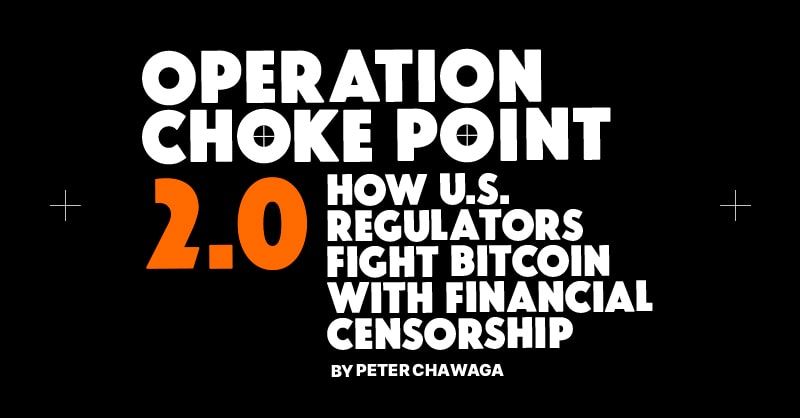
Trump's move will target a policy known as "Operation Chokepoint 2.0". The term refers to an initiative by the Biden administration that allegedly deliberately made it difficult for crypto companies to access the banking system.
The aim is to reduce the risks associated with the crypto industry, which is still considered to be full of uncertainty and potential fraud.
"Operation Chokepoint 2.0" is reminiscent of the Obama administration's "Operation Choke Point" policy, which at that time focused on cracking down on payday lending institutions and gun dealers.
What is the Impact on Crypto Companies?
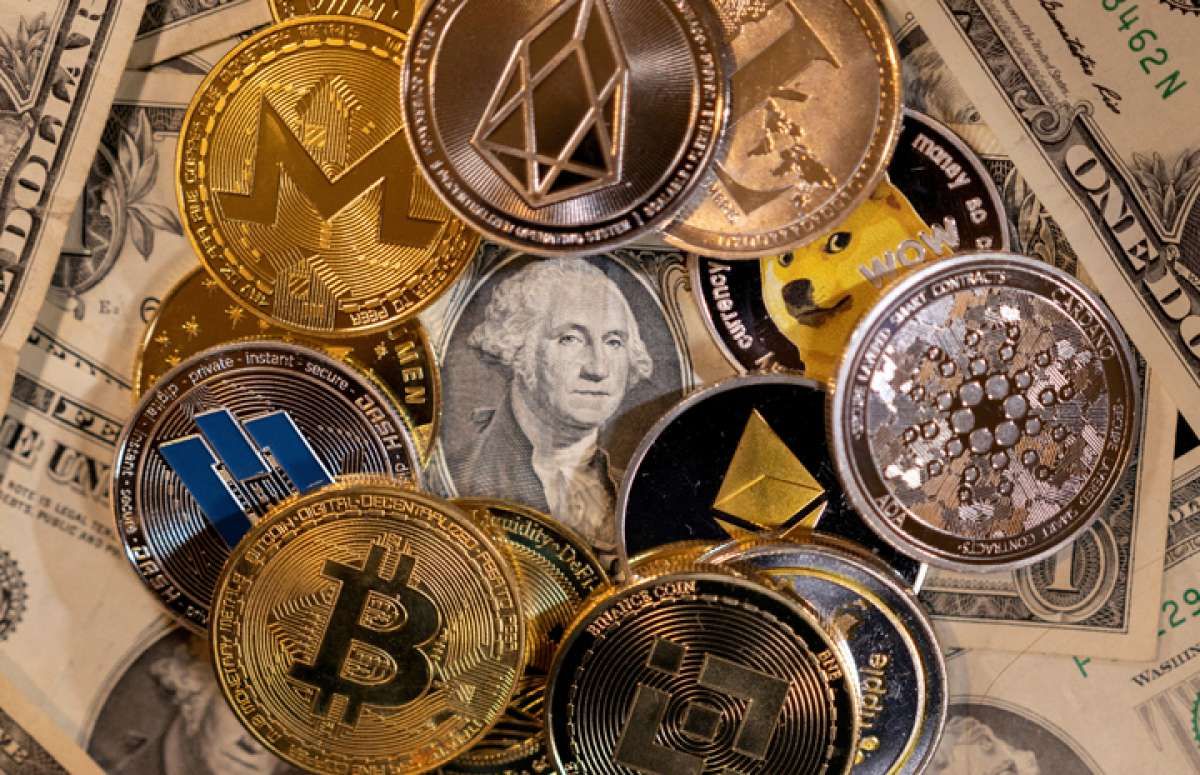
The cancellation of these restrictions could open up huge opportunities for the crypto industry. One of the main changes expected is easier access for crypto banks to use master accounts managed by Federal Reserve.
Master accounts are important because they allow banks to make direct payments and gain access to services provided by the United States central bank.
Previously, under the Biden administration, banks like Custodia, which focus on digital assets, were not granted such access, which clearly hindered their development.
The Impact on the Crypto Ecosystem
If this executive order is signed, it could pave the way for crypto banks to obtain services from the Federal Reserve, which has previously been very difficult to reach.
This will provide greater room for crypto companies to grow, considering that they can run their banking operations more efficiently and securely.
It is also hoped that the decision will reduce uncertainty in the crypto sector and provide more confidence to investors and industry players.
New Policy for Stablecoins
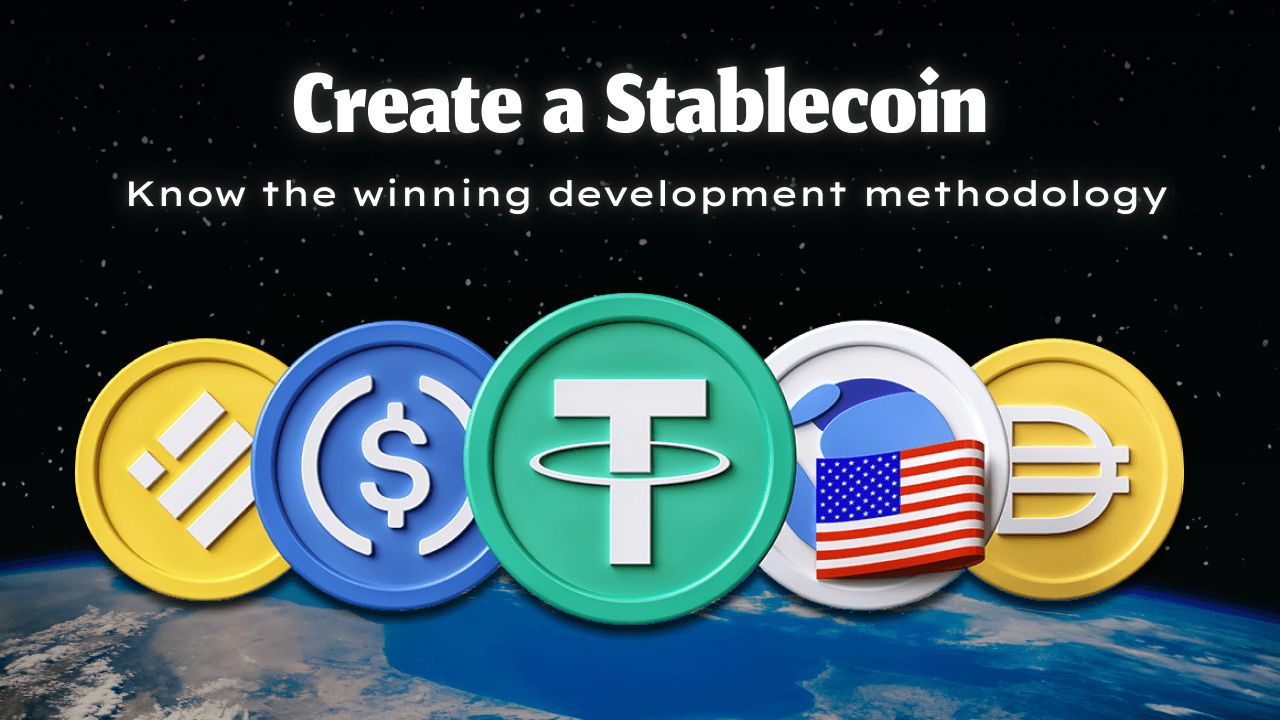
In addition, this executive order could also include new rules regarding stablecoins, which are a type of cryptocurrency that is designed to have a stable value and is usually pegged to the US dollar.
If this order is approved, stablecoins may no longer be treated as securities, which would make them easier to use and more accepted by traditional financial institutions.
This is a very important change, as stablecoins can be a bridge between the crypto world and the broader traditional financial system.
Legal and Policy Challenges
However, this step will not go smoothly without obstacles. This policy could face legal challenges, especially regarding the independence of the Federal Reserve, which is not fully under the president's executive control.
However, Trump and his team are determined to continue pushing for these changes despite facing possible resistance from those who favor strict regulation of the crypto industry.
Conclusion
Decision President Donald Trump to sign an executive order removing banking policy restrictions on the crypto industry brings a breath of fresh air to the development of the digital asset sector.
By rolling out policies that could open crypto banks' access to Federal Reserve services and provide clarity regarding the legal status of stablecoins, this is a big step towards creating a more stable and thriving ecosystem.
However, although this policy is promising, legal and political challenges will still be obstacles that must be faced. Going forward, the crypto world will likely experience a more dynamic period, with more open opportunities and risks.
FAQ
1. What is meant by "Operation Chokepoint 2.0"?
Operation Chokepoint 2.0 is a policy implemented by the Joe Biden administration aimed at making it more difficult for crypto companies to access banking services, in the hope of reducing the risks associated with the crypto industry.
2. What impact will rolling back banking restrictions have on crypto companies?
Removal of these restrictions could provide crypto banks with easier access to Federal Reserve master accounts, allowing them to conduct financial operations more efficiently and securely. This opens up opportunities for the crypto sector to develop more rapidly.
3. How will this new policy affect stablecoins?
The new policy will likely stipulate that stablecoins, which are typically pegged to the US dollar, will no longer be considered securities. This will make it easier for stablecoins to be more widely accepted by traditional financial institutions and increase adoption in the market.
How to Buy Crypto on Bittime

Want to trade sell buy Bitcoins and crypto investment easily? Bittime is here to help! As an Indonesian crypto exchange officially registered with Bappebti, Bittime ensures every transaction is safe and fast.
Start with registration and identity verification, then make a minimum deposit of IDR 10,000. After that, you can immediately buy your favorite digital assets!
Check the exchange rate BTC to IDR, ETH to IDR, SOL to IDR and other crypto assets to find out today's crypto market trends in real-time on Bittime.
Also, visit the Bittime Blog for interesting updates and educational information about the crypto world. Find reliable articles about Web3, blockchain technology, and digital asset investment tips designed to enrich your crypto knowledge.
References
crypto news, Coinpedia.org, accessed March 11, 2025
crypto news, Ainvest.com, accessed March 11, 2025
Author: Fkey
Disclaimer: The views expressed belong exclusively to the author and do not reflect the views of this platform. This platform and its affiliates disclaim any responsibility for the accuracy or suitability of the information provided. It is for informational purposes only and not intended as financial or investment advice.


